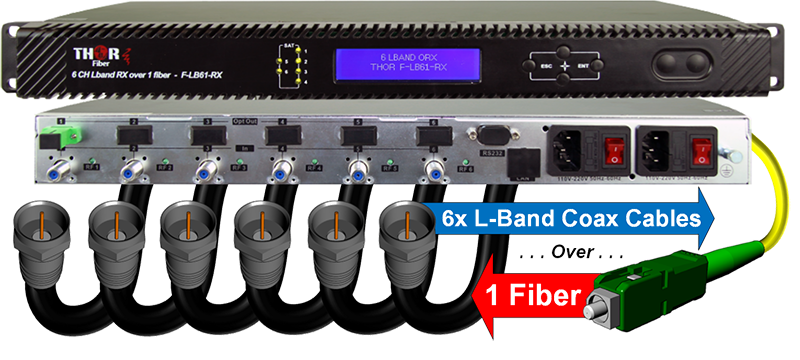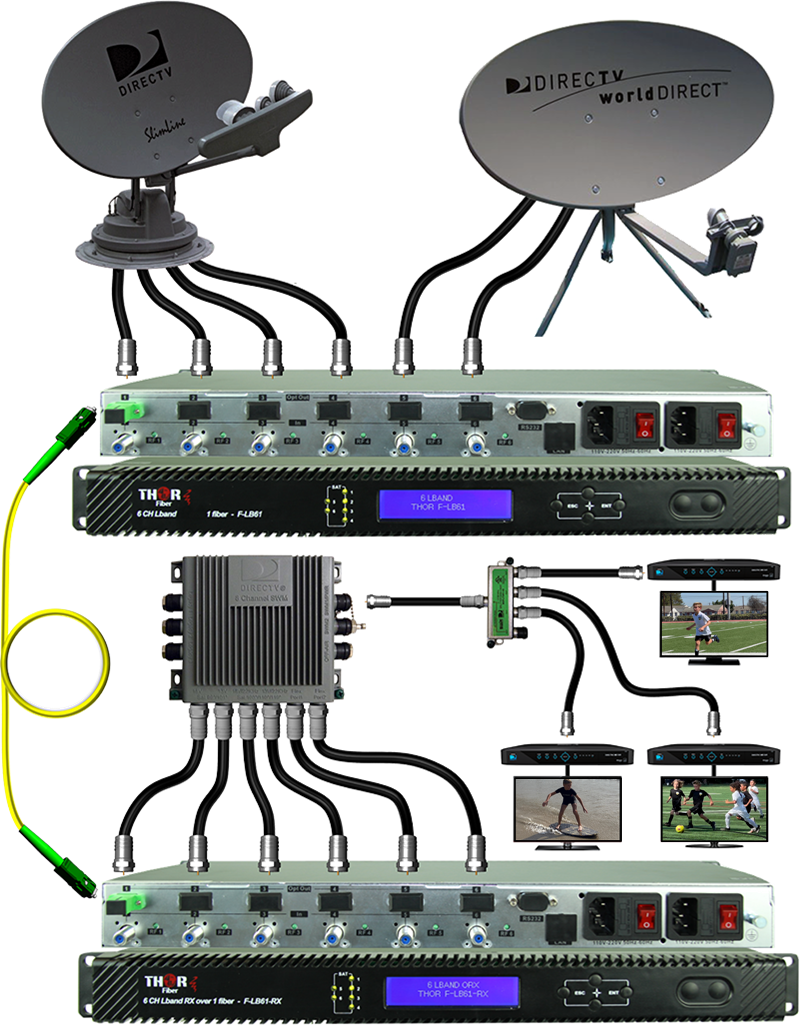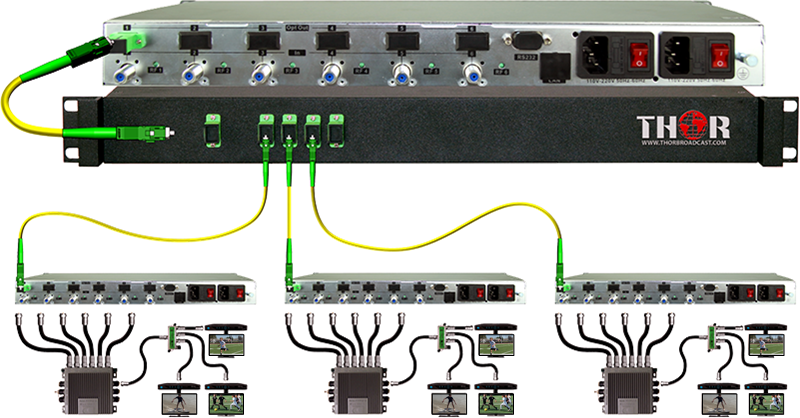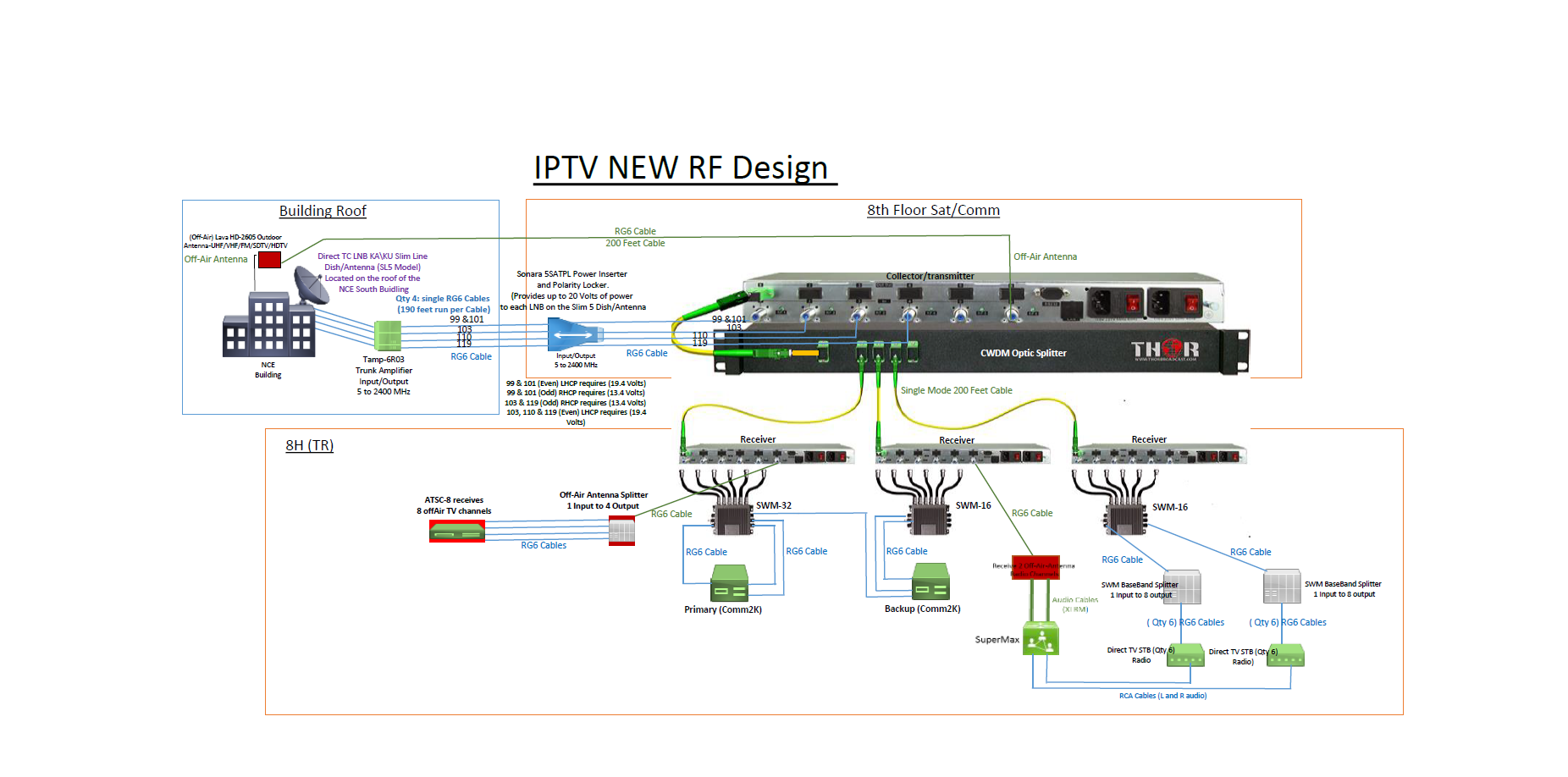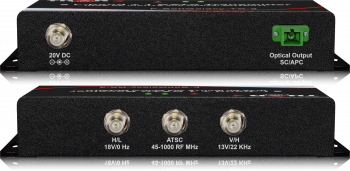Answer: Thank you for reaching out to us. The F-LB61-CWDM-TX/RX is an excellent choice for sending 6 L-band signals over a single fiber.
We utilize 6 individual CWDM lasers for each RF signal.
The transmitter can power an LNB with 13 or 18 or 13/22hz, 18V/22Hz power if needed.
The transmitter and the receiver come with dual redundant power supply. It operates over 1 single-mode fiber with SC/APC connectors.
The Transmitter / Receiver can also have an SNMP option for monitoring
--------------------------------------------------
2)
he LB61 should not have any issues with the setup you will have. If the transmitter receives 90-110dBuv RF input, we will be fine. The TX/RX kit can support up to 20km of fiber, so 5km should not be a problem. Since you will use your own power, the TX will be set to 0V output.
Please find my answers:
A) 1470,1490,1510,1530,1550,1570,1590nm
B) No, it is not tied to the optical transport. The device needs to be connected to the local LAN. However, if you have extra fibers, you can establish an independent 10/100/1000 link between the sides using Ethernet transceivers like that:
F-GET-SFP-TR
C) No, unfortunately we did not conduct a study as we do not have enough data. This is a relatively low quantity specialty product, we do not have too many failures or RMAs. I would estimate 1-3% in 3 years
D) The signal is relatively flat, probably 5dB maximum across the entire spectrum
E) So, normally we do not produce them in 48V DC. We could possibly do it, but it would be costly, and we would need to charge an additional fee for it. If you do not require it, I would recommend going with the standard 120-220V AC
-

 ES
ES





